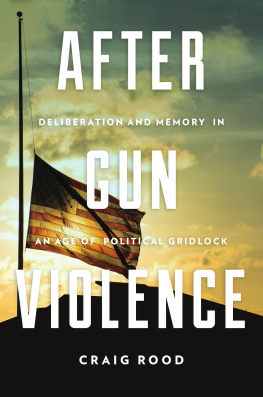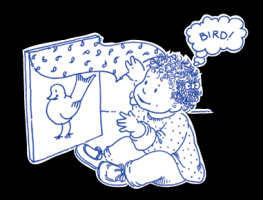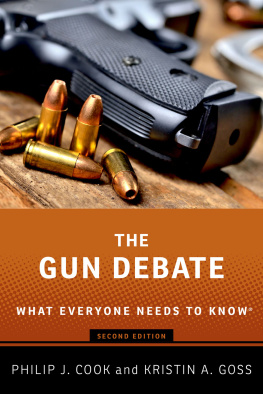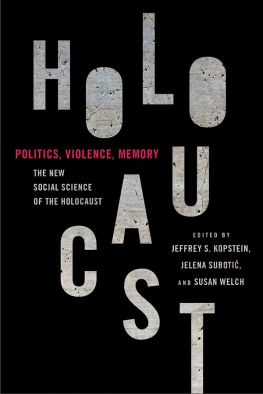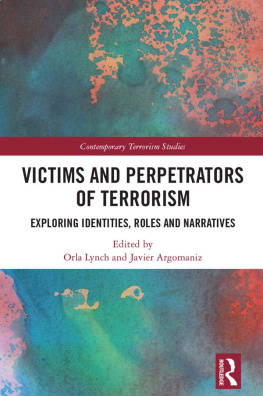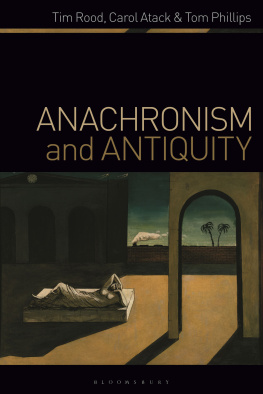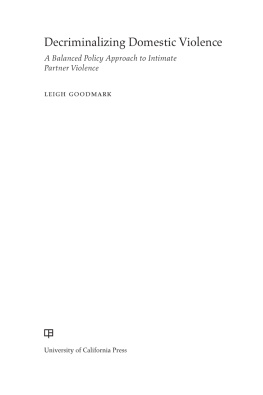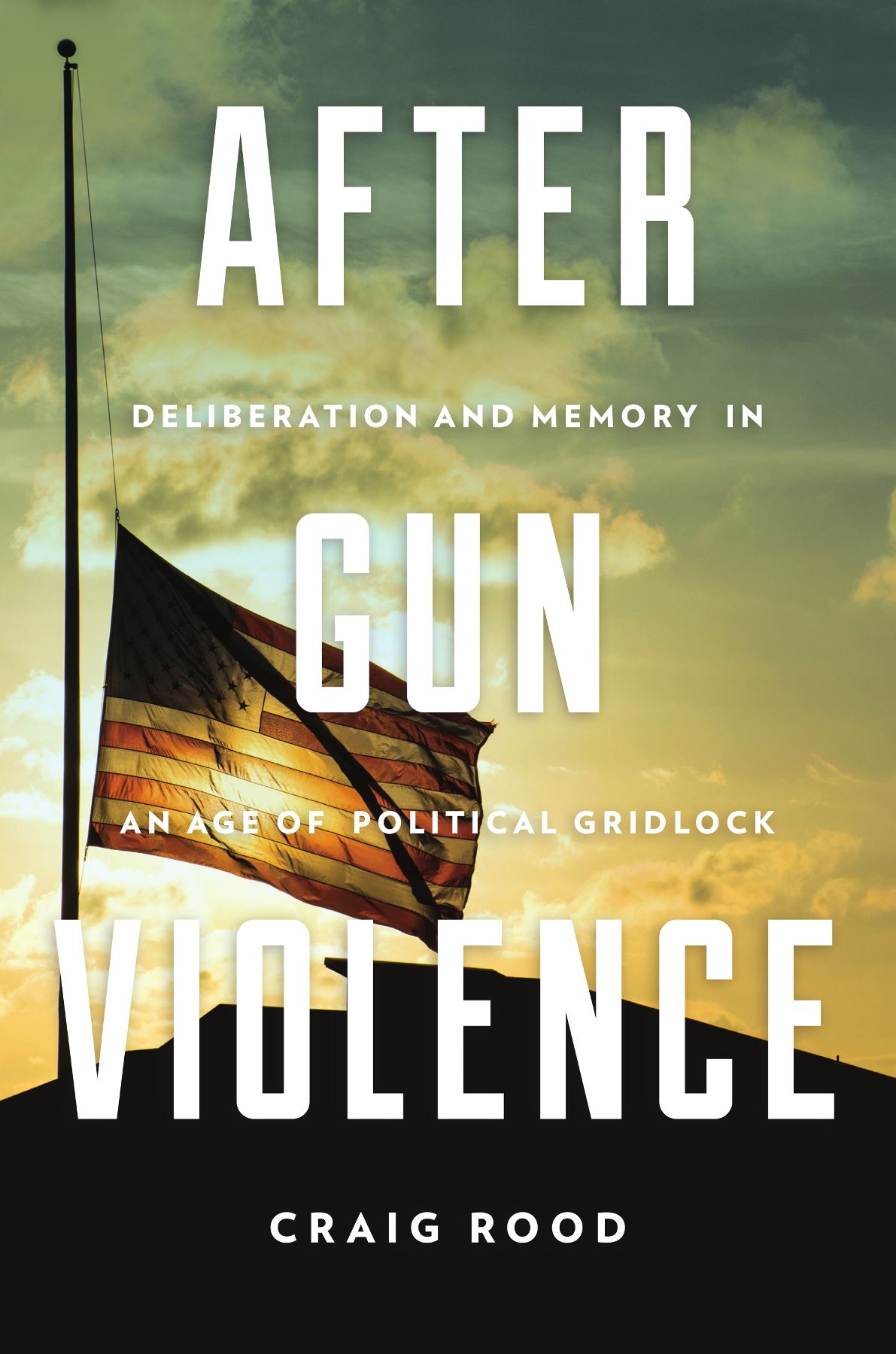

EDITED BY CHERYL GLENN AND STEPHEN BROWNE
THE PENNSYLVANIA STATE UNIVERSITY
Cofounding Editor: J. Michael Hogan
Editorial Board:
Robert Asen (University of WisconsinMadison)
Debra Hawhee (The Pennsylvania State University)
J. Michael Hogan (The Pennsylvania State University)
Peter Levine (Tufts University)
Steven J. Mailloux (University of California, Irvine)
Krista Ratcliffe (Arizona State University)
Karen Tracy (University of Colorado, Boulder)
Kirt Wilson (The Pennsylvania State University)
David Zarefsky (Northwestern University)
Rhetoric and Democratic Deliberation focuses on the interplay of public discourse, politics, and democratic action. Engaging with diverse theoretical, cultural, and critical perspectives, books published in this series offer fresh perspectives on rhetoric as it relates to education, social movements, and governments throughout the world.
A complete list of books in this series is located .
After Gun Violence
Deliberation and Memory in an Age of Political Gridlock
CRAIG ROOD
The Pennsylvania State University Press | University Park, Pennsylvania
Library of Congress Cataloging-in-Publication Data
Names: Rood, Craig, 1985 author.
Title: After gun violence : deliberation and memory in an age of political gridlock / Craig Rood.
Other titles: Rhetoric and democratic deliberation.
Description: University Park, Pennsylvania : The Pennsylvania State University Press, [2019] | Series: Rhetoric and democratic deliberation | Includes bibliographical references and index.
Summary: A rhetorical study of the American political debate on gun violence and gun policy. Examines the role of public memory in shaping this discourse and its eventual policy outcomesProvided by publisher.
Identifiers: LCCN 2019005851 | ISBN 9780271083834 (cloth : alk. paper)
Subjects: LCSH: Firearms and crimeUnited States. | Violent crimesUnited States. | Mass shootingsUnited States. | FirearmsGovernment policyUnited States. | Collective memoryUnited States. | RhetoricUnited States.
Classification: LCC HV7436.R66 2019 | DDC 364.150973dc23
LC record available at: https://lccn.loc.gov/2019005851
Copyright 2019 Craig Rood
All rights reserved
Published by The Pennsylvania State University Press,
University Park, PA 16802-1003
The Pennsylvania State University Press is a member of the Association of University Presses.
focus too on all the planes that do not crash
all the spaces that are indeed safe
all the vehicles that do not collide
all the hugs exchanged
all the love that does indeed pass between persons
remember that because it can happen anywhere doesnt mean it is
going to happen anywhere in particularwhere you and your loved ones
areat any particular time
love and reason
and a steady hand
Rosa A. Eberly, Towers of Rhetoric
Contents
I gratefully acknowledge permission to use revised versions of two previously published essays. has been adapted from The Racial Politics of Gun Violence: A Brief Rhetorical History, in Was Blind but Now I See: Rhetoric, Race, Religion, and the Charleston Shootings, ed. Sean Patrick ORourke and Melody Lehn (Lanham, MD: Lexington, forthcoming).
Crafting this book has been a long process, and I am grateful to the many people who have helped at different stages. Thanks to everyone involved with the Rhetoric and Democratic Deliberation series at Pennsylvania State University Press, including press editors Kendra Boileau and Ryan Peterson, series editors Cheryl Glenn and Stephen Browne, and the two peer reviewers (who elected to disclose their names), Robert Asen and Kendall Phillips. Their thoughtful readings and encouragement have helped make this a better book. Thanks as well to the team at Scribe Inc. for their excellent work during the final stages of preparing this manuscript (copyediting, proofreading, creating an index).
Thanks to everyone in the Department of English and Program in Speech Communication at Iowa State University. Ben Crosby (now at Brigham Young University) helped me get this project off the ground. During our periodic lunches around Ames, we puzzled through the process of writing any book, and he helped me test out ideas for how to write this one. Near the end of this process, Lori Peterson, editor extraordinaire, provided a close reading of the entire manuscript. And throughout the process, I have been inspired by my colleagues and buoyed by their questions, suggestions, and encouragement. Special thanks to Lesley Bartlett, Barbara Ching, Abby Dubisar, Sean Grass, Charlie Kostelnick, Anne Kretsinger-Harries (and Mark!), Maggie LaWare, Prashant Rajan, Brandon Sams, Matt Sivils, and Jeremy Withers. Finally, the department, college, and university deserve praise for their efforts to support and mentor junior faculty. In particular, the College of Liberal Arts and Sciencess Humanities Scholarship Enhancement Initiative freed up time in fall 2016 to make progress on this project. And the Iowa State University Publication Endowment Fund (ISU Foundation) provided a subvention grant to support the publication of this book.
Outside of Iowa State, several people have provided valuable feedback and encouragement on various pieces of this book, even though they might not recognize its current form. Thanks to Brian Amsden, Earl Brooks, Mark Hlavacik, Mike Hogan, Bill Keith, Melody Lehn, Andrew Mara, Sean Patrick ORourke, Sam Perry, Billy Saas, Jack Selzer, Brad Serber, Mary Stuckey, Kirt Wilson, and David Zarefsky.
Since this is my first book, I feel like I need to thank every single teacher who has helped me up to this point. Three of them deserve special recognition for inspiring me with their intense intelligence and unparalleled generosity. Lee Kruger introduced me to rhetoric in a composition class during my first year of college (and read my first essay on the gun debate). Amy Rupiper Taggart, who died far too young, encouraged me to go to graduate school, taught me how to teach, and then advised me through my masters program. Rosa Eberly advised me through my doctoral program. I have learned much from her about gun violence and rhetoric. On and off the page, Rosas example provides a regular reminder of Wayne Booths claim that the quality of our lives, moment by moment, depends upon the quality of our rhetoric.
Thanks to all my family. Special thanks to my parents, Brenda and Rodney, whose love and support have been constant. Without your encouragement, I sincerely doubt whether I would have ever gone to college, let alone graduate school. As a teenager growing up in North Dakota, I spent many weekends with my dad shooting at targets and hunting gophers, ducks, and deer. Although I have since chosen not to own or use guns, I value the time we spent together, and I think those early experiences have helped me write a better book. Thank you both for everything. Thanks also to Lauras familyespecially her parents, Keith Brown and Martha Bransonfor your questions about my research and for welcoming me into your family.
And then there is my favorite personLaura Michael Brown. Without you, this book would not exist. Youve been there every day, optimistic when I needed it most (and critical when I did not realize thats what I needed). Thanks for reading all those drafts and for all our conversations. Thanks, too, for reminding me that there is life outside of my office. I am so grateful that you sent me that Kenneth Burke article all those years ago and that we have gotten to spend our lives together.

